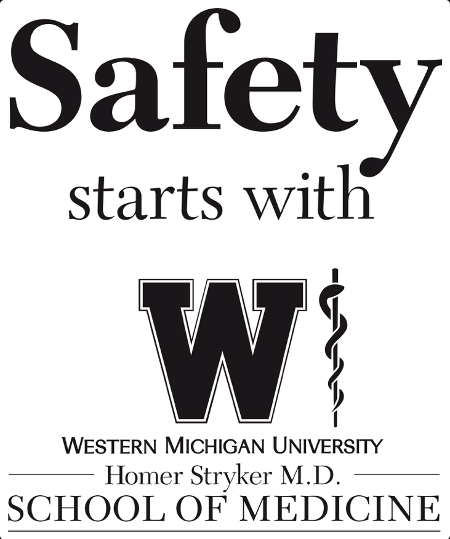
In June, medical school leaders have been focused on increasing awareness among faculty, residents, students and staff about workplace, campus, patient care and personal safety.
The efforts are all part of National Safety Month, a time when WMed joins other organizations from across the country to enhance communication among internal stakeholders about safety with the campaign “Safety Starts with WMed.”
“Simply put, this is the right thing to do,” said Drake Olson, the medical school’s Director of Facilities and Chief Safety and Security Officer. “We want our people to be safe and National Safety Month allows us one time a year during which we focus our efforts to ensure that happens.”
This year’s campaign at WMed included the sharing of important information, including safety tips and reminders, through internal communication channels, as well as annual training for emergency coordinators and campus safety authorities (CSAs).
At WMed, emergency coordinators are volunteers within each department, unit or floor who play a leadership role during actual emergencies and preparedness drills. CSAs are appointed because they have significant responsibility for student and campus activities.
The medical school also hosted an AED training session for faculty, residents, students and staff that provided hands-on experience with an AED and information on how to use the device in the event of an emergency. Additionally, during the month of June, medical school officials tested WMed’s Emergency Notification System, which is used to inform members of the WMed community of emergency situations, closures and other important notifications.
WMed holds fire and tornado drills, and active shooter drills regularly during the year at the W.E. Upjohn M.D. and Oakland Drive campuses, as well as the Innovation Center and the Department of Psychiatry at the Borgess North Professional Building on Gull Road. In previous years, the medical school has conducted biohazard and epidemic drills, as well as infant-abduction drills at the WMed Clinics.
